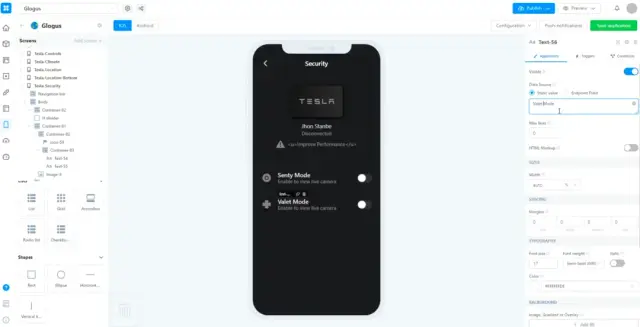Strategic Outsourcing: When and How for Startups
Explore the importance of strategic outsourcing for startups, learn when to consider outsourcing, and gain insights into successfully implementing an outsourcing strategy.

In the fast-paced world of startups, the ability to scale rapidly, adapt to changing circumstances, and remain efficient is crucial to success. One valuable approach that enables startups to achieve these goals is strategic outsourcing.
By leveraging the expertise of external partners, startups can access specialized skills and services while maintaining focus on their core business objectives. This article delves into the importance of strategic outsourcing for startups, examines scenarios when outsourcing might be the right move, and offers insights into implementing an outsourcing strategy.
The Importance of Strategic Outsourcing for Startups
Strategic outsourcing refers to the process of delegating specific tasks, processes, or services to an external organization in order to meet business objectives more effectively. This approach can be especially beneficial for startups for several reasons.
- Access to specialized skills: Outsourcing provides startups with access to specialized skills and expertise that may not be readily available in-house. This allows startups to focus on their core competencies while partnering with experienced professionals to handle specific tasks or processes.
- Cost savings: Developing certain in-house capabilities can be expensive and time-consuming. By outsourcing these tasks, startups can save both time and resources. Outsourcing enables startups to tap into cost-effective, high-quality services without the need to invest in training, software, or equipment.
- Flexibility and scalability: Outsourcing offers startups the flexibility to scale their business operations up or down with ease. As your startup grows and the demand for specific services increases, you can quickly engage additional resources from your outsourcing partner, avoiding wasted investment in underutilized resources.
- Focus on core activities: Delegating specific tasks to external partners allows startups to focus on their core business activities, such as product development, marketing, and customer engagement. By concentrating on their core competencies, startups can drive innovation and ensure a competitive advantage in the market.
- Risk management: Outsourcing can help startups minimize operational risks by placing the burden of compliance, security, and quality control on the outsourcing partner. By engaging an experienced and reputable service provider, startups can leverage the partner's expertise to reduce the likelihood of errors and mitigate potential risks.
Key Areas to Outsource
When strategically approaching outsourcing, startups should identify the areas where external expertise can have the most significant impact on their growth. This involves understanding core functions that can be managed internally without compromising resources and those that are better handled by experts. Here are some key areas to consider outsourcing for startups:
Software Development
One of the most common areas for outsourcing in startups is software development, especially when they lack the internal resources needed to handle complex projects. Outsourcing to experienced development teams with specialized skillsets grants startups access to a wide range of expert knowledge, significantly reducing the time and cost spent on the development process.
Digital Marketing
Creating a powerful digital marketing strategy is critical to promoting a startup's brand, products, and services in today's digital environment. Specialized digital marketing agencies can provide in-depth insights, strategies, and processes to effectively reach target audiences and deliver successful campaigns — essential components that often require extensive experience and dedicated teams that startups may lack.

Financial Management
Financial management is a vital aspect of any startup. Ensuring a solid financial foundation is crucial to long-term growth and stability. By outsourcing financial activities like bookkeeping, tax planning, and financial analysis, startups can access expert services while liberating their resources to focus on core business tasks.
Customer Support
Maintaining excellent customer support is indispensable to building customer loyalty and maintaining a positive brand image. Outsourcing customer support can provide startups with access to specialized teams that are trained and equipped to handle customer inquiries and concerns efficiently. This allows startups to maintain a high level of customer satisfaction without dedicating significant internal resources.
Human Resources Management
As startups grow, their human resources requirements become increasingly complex. Outsourcing HR functions can ensure that the business stays compliant with labor laws, benefits administration, payroll, and talent management by employing HR experts who are experienced in handling such complexities.
How to Successfully Implement an Outsourcing Strategy
To maximize the benefits of strategic outsourcing, startups must follow a clear and structured approach. Here are some steps to successfully implement an outsourcing strategy:
- Define Your Goals: Before seeking external service providers, startups should clearly define their outsourcing objectives. These can include cost savings, accessing specialized expertise, managing capacity constraints, or enhancing the quality of deliverables. Defining these goals allows startups to identify the specific areas to outsource and select the most suitable outsourcing partners.
- Choose the Right Outsourcing Partner: Selecting an experienced and reliable outsourcing partner is critical to achieving desired outcomes. Startups should carefully vet potential outsourcing partners by considering factors such as their industry experience, past performance, client testimonials, and cultural compatibility.
- Maintain Clear Communication: Effective communication is essential in any outsourcing partnership. Both parties should establish a proper communication channel, define each stakeholder's roles and responsibilities, and regularly update each other on project progress. This enables swift issue resolution and aligns both parties' expectations.
- Set Expectations and Service Level Agreements (SLAs): To mitigate the risk of conflicts and misunderstandings, startups should define transparent expectations and service level agreements in their outsourcing contracts. This includes specifying project timelines, deliverables, quality standards, and performance measurements, which helps maintain accountability and ensure project success.
- Sign Well-Defined Contracts: A comprehensive contract should include aspects such as ownership of intellectual property, liability clauses, payment terms, confidentiality agreements, and termination conditions. This protects both parties and aids in resolving any disputes that may arise during the outsourcing partnership.
Effectively Managing Outsourced Teams
Once an outsourcing partnership has been established, startups must effectively manage outsourced teams to ensure success. Here are some tips for managing outsourced teams:
Set Clear Expectations
Start by clearly defining the outsourced team's objectives, priorities, and deliverables. This will help them understand the project's expectations and enable them to work efficiently, contributing significantly to the project's success.
Establish Open Communication
Maintain open lines of communication with the outsourced team to address issues and challenges promptly. Encourage regular updates and collaborative discussions, enabling the team to stay aligned and informed throughout the project.
Implement Performance Metrics
Define key performance indicators (KPIs) and metrics to measure progress, detect bottlenecks, and ensure the outsourced team is delivering as per expectations. Regularly review these metrics and provide feedback to the team for improvements.
Offer Support and Resources
Providing the outsourced team with appropriate resources and tools to accomplish their tasks can significantly improve their performance. Additionally, assess their needs for support and offer assistance, whether through technical help or clarifying project requirements.
Foster a Positive Working Environment
Cultivate a positive and collaborative atmosphere that encourages cooperation, innovation, and open communication between in-house employees and outsourced team members. This can lead to enhanced productivity, employee satisfaction, and long-term success for the partnership.
By selecting the right outsourcing partner, accurately defining goals, and effectively managing outsourced teams, startups can successfully implement a strategic outsourcing strategy that accelerates growth, drives innovation, and enhances competitiveness. Additionally, leveraging no-code platforms like AppMaster can streamline the management of outsourced software development projects and facilitate seamless collaboration between startups and their outsourcing partners.
The Role of No-Code Platforms like AppMaster in Streamlining Outsourcing
No-code platforms like AppMaster have become a game-changer for startups looking to outsource software development tasks. With a visual interface and drag-and-drop functionality, these platforms empower businesses to build web, mobile, and backend applications without writing a single line of code. By using no-code platforms, startups can streamline the management of outsourced projects and optimize collaboration between internal teams and outsourcing partners. Here are some of the ways in which AppMaster and similar platforms can support strategic outsourcing for startups:
- Standardizing the development process: With AppMaster, startups can establish a standardized development process for their projects. This ensures that outsourced teams have a clear understanding of the coding and project management conventions, resulting in faster development times and higher-quality deliverables.
- Flexibility and control: AppMaster provides the flexibility to generate backend, web, and mobile applications using a visual approach, allowing startups to maintain control over the project's specifications and tailor solutions to their unique needs. Entrepreneurs can readily modify project plans and quickly adapt to changing market requirements without compromising the overall development efficiency.
- Effective collaboration: AppMaster enables startups to collaborate effectively with their outsourcing partners, streamlining communication and fostering a better understanding of the project's goals and requirements. Additionally, the platform's role-based access control ensures everyone involved in the project has the right permissions and information.
- Reduced technical debt: Since AppMaster generates applications from scratch whenever requirements change, the platform eliminates technical debt and guarantees that the final product is always up-to-date. This feature is particularly beneficial for startups outsourcing software development, as it reduces the need for extensive revisions or bug fixes.
- Cost savings: By cutting development time, reducing the need for specialized skills and minimizing technical debt, AppMaster can significantly reduce the overall cost of outsourcing projects. Startups can invest these cost savings into other areas of their business.

Measuring the Success of Your Outsourcing Strategy
To determine the effectiveness of your outsourcing strategy, it's essential to regularly evaluate its impact on your startup's performance and growth. Below are some key performance indicators (KPIs) that can help you assess the success of your outsourcing initiatives:
- Cost savings: One of the primary reasons for outsourcing is to achieve cost savings. Monitor your actual cost savings against your projections to determine if outsourcing is delivering the desired financial benefits.
- Quality improvements: Outsourcing should result in higher-quality deliverables. Evaluate the quality of the outsourced work, whether it's software development, digital marketing, or customer support, and assess the impact on your startup's performance.
- Compliance with service level agreements (SLAs): SLAs are essential for managing expectations and defining the scope of work. Ensure your outsourcing partner is consistently meeting or exceeding the agreed-upon SLAs to maintain a successful partnership.
- Efficiency gains: Outsourcing should enable your startup to operate more efficiently. Examine how outsourcing affects your internal processes, the speed of project completion, and the time-to-market for new products or services.
- Overall business impact: Evaluate the outsourcing strategy's overall contribution to your startup's growth, market position, and long-term goals. This may include factors such as increased revenue, improved customer satisfaction, or enhanced brand reputation.
Continually measuring these KPIs will help you make informed decisions about your outsourcing strategy and adapt it over time to ensure its ongoing success.
Final Thoughts
Strategic outsourcing can be an invaluable tool for startups seeking rapid growth and increased competitiveness. By identifying the right tasks to outsource, selecting a suitable partner, and effectively managing the relationship, startups can reap the benefits of outsourcing and drive their business forward.
No-code platforms like AppMaster can play a pivotal role in streamlining the outsourcing process, providing startups with an efficient means to collaborate with outsourcing partners and develop high-quality, cost-effective solutions. As you embark on your outsourcing journey, keep in mind the importance of measuring the success of your strategy to ensure its ongoing effectiveness and adapt it as needed to meet your evolving business goals.
FAQ
Strategic outsourcing refers to a company's decision to delegate certain business tasks or processes to external service providers, allowing the company to focus on its core competencies and achieve its primary business objectives.
Strategic outsourcing is important for startups as it enables them to access specialized skills, save on costs, increase flexibility, and focus on their core business activities, ultimately resulting in rapid growth and increased competitiveness.
Startups should consider outsourcing when they need specialized skills, encounter capacity constraints, require cost savings, want to minimize risks, or need to rapidly scale the business.
Some key areas where startups can outsource include software development, digital marketing, financial management, customer support, and human resources management.
Startups can successfully implement an outsourcing strategy by clearly defining their goals, selecting the right outsourcing partner, maintaining clear communication, setting expectations, and signing well-defined contracts.
No-code platforms like AppMaster enable startups to bridge the gap between business demands and technology capabilities, streamlining the management of outsourced software development projects and enhancing collaboration between the startup and the outsourcing partner.
Effective management of outsourced teams involves setting clear expectations, maintaining open communication, implementing performance metrics, ensuring regular feedback, and offering support and resources to the outsourced team.
Startups can measure the success of their outsourcing strategy by assessing key performance indicators (KPIs) such as cost savings, quality improvements, compliance with service level agreements (SLAs), efficiency gains, and overall business impact.





